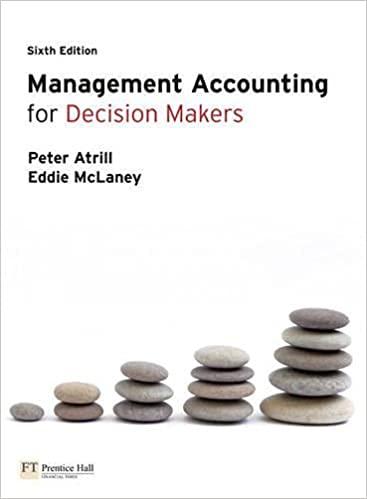Question
Question 2 You are the financial accountant for Rodeo Ltd. (Rodeo), a construction company based in the capital. Business is currently doing very well as
Question 2 You are the financial accountant for Rodeo Ltd. (Rodeo), a construction company based in the capital. Business is currently doing very well as the national economy continues to grow. It is currently 31 January 2018 and you are preparing Rodeos financial statements for the year ended 31 December 2017. Right now you are working on the Property, Plant, and Equipment (PPE) section of the accounts and have encountered a number of issues that are detailed below.
Issue 1: Rodeo revalued its owner-occupied properties on 1 January 2017 to 35m. At 31 December 2016, the carrying amount of the properties was 25m (Cost: 30m, Accumulated Depreciation: 5m). The revaluation surplus at 31 December 2016 was 2m. Rodeo also re-estimated the useful life of the properties to 50 years from the revaluation date with nil residual value. Rodeo has an accounting policy of transferring excess depreciation from the revaluation surplus to retained earnings.
Issue 2: Rodeo took out a loan of 5m on 1 April 2017 to produce a specialist item of equipment that it will use in large construction projects. The production is expected to take one year due to the complexities involved. The interest rate on the loan is 5% per annum. By year end 31 December 2017, Rodeo had made 100,000 in interest payments on the loan.
Requirements:
1) For Issue 1, provide the name of the accounting standard dealing with owner-occupied properties. Based on the information provided, show all the journal entries required to account for the properties in the 31 December 2017 financial statements of Rodeo. (9 marks)
2) For Issue 2, provide the name of the accounting standard that deals with borrowing costs. Three conditions are necessary in order for an entity to capitalise borrowing costs in relation to the construction of an asset; briefly outline those conditions. Next, define the term qualifying asset in relation to borrowing costs. Finally, provide all the journal entries required to account for the loan interest for the year ended 31 December 2017. There is no need to provide the accounting entries for the loan itself.
Step by Step Solution
There are 3 Steps involved in it
Step: 1

Get Instant Access to Expert-Tailored Solutions
See step-by-step solutions with expert insights and AI powered tools for academic success
Step: 2

Step: 3

Ace Your Homework with AI
Get the answers you need in no time with our AI-driven, step-by-step assistance
Get Started


